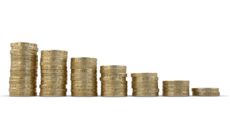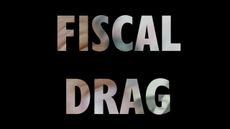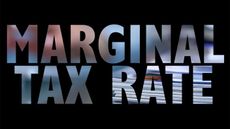Too embarrassed to ask: what is an emerging market?
This week's “too embarrassed to ask” explains what emerging markets are, and why you might want to invest in them.
When it comes to investing, countries are split into two broad categories: “developed markets” and “emerging markets”. Developed markets are mostly the ones you’d expect – wealthy, advanced economies with large, well-regulated financial markets. The UK, the US and Japan are obvious examples.“Emerging market” meanwhile is used to describe countries that are becoming wealthier and more economically advanced, but which are not yet classed as developed economies.
The most influential bodies in deciding on a market’s status are the index providers – the companies who compile and calculate stock market indices, such as MSCI or FTSE Russell.
As with many terms in investment, however, there is no universal definition of what exactly separates an emerging market from a developed market.So some countries – such as South Korea – might be viewed as emerging markets by one provider, and developed by another.
Subscribe to MoneyWeek
Subscribe to MoneyWeek today and get your first six magazine issues absolutely FREE

Sign up to Money Morning
Don't miss the latest investment and personal finances news, market analysis, plus money-saving tips with our free twice-daily newsletter
Don't miss the latest investment and personal finances news, market analysis, plus money-saving tips with our free twice-daily newsletter
Index providers don’t just look at economic development. They also take into account the size of local financial markets, and how easy it is to trade in and out of them.For example, most Gulf nations are classed as “emerging markets”, despite having high income per head, because their markets are smaller and less easy to invest in than those in developed markets.
A country can also move between the categories. For example, in 2013, as a result of the eurozone sovereign debt crisis, most index providers moved Greece from “developed” to “emerging” market status.
Another term you may encounter is “frontier markets”. These are developing economies that have not yet reached emerging status.While some of these countries are much poorer than those in the emerging markets index, others – such as Vietnam – are classed as frontier markets only because they impose restrictions on foreign investors.
Why might an investor want to have exposure to emerging markets? Investing in these nations tends to be riskier. However, they also tend to be faster growing.The idea is that investors will be rewarded for taking this higher risk with higher returns.As always though, it makes sense to diversify. For more on the best ways to invest in emerging and frontier markets, subscribe to MoneyWeek magazine.
-
-
 Most popular stocks of 2023: AI on the up while interest in Netflix plummets
Most popular stocks of 2023: AI on the up while interest in Netflix plummetsWe reveal the most popular shares of 2023 so far.
By Ruth Emery Published
-
 Marine North Berwick review: Scotland’s magical bird isles
Marine North Berwick review: Scotland’s magical bird islesMatthew Partridge combines a stay at Marine North Berwick with a visit to see the puffins
By Dr Matthew Partridge Published
-
What is an investment trust?
Videos “Active” investment funds come in two main varieties, one of which is investment trusts. But what exactly is an investment trust?
By Rupert Hargreaves Published
-
 What is a dividend yield?
What is a dividend yield?Videos Learn what a dividend yield is and what it can tell investors about a company's plans to return profits to its investors.
By Rupert Hargreaves Published
-
 High earners to pay nearly £2000 more in tax due to fiscal drag
High earners to pay nearly £2000 more in tax due to fiscal dragVideos The government froze tax thresholds, which will drag employees into higher tax bands as wages rise with inflation. We explain what fiscal drag is, and how to avoid it.
By Nicole García Mérida Last updated
-
 What is a deficit?
What is a deficit?Videos When we talk about government spending and the public finances, we often hear the word ‘deficit’ being used. But what is a deficit, and why does it matter?
By moneyweek Published
-
 Too embarrassed to ask: what is moral hazard?
Too embarrassed to ask: what is moral hazard?Videos The term “moral hazard” comes from the insurance industry in the 18th century. But what does it mean today?
By moneyweek Published
-
 Too embarrassed to ask: what is contagion?
Too embarrassed to ask: what is contagion?Videos Most of us probably know what “contagion” is in a biological sense. But it also crops up in financial markets. Here's what it means.
By moneyweek Published
-
 Too embarrassed to ask: what is a marginal tax rate?
Too embarrassed to ask: what is a marginal tax rate?Videos Your marginal tax rate is simply the tax rate you pay on each extra pound of income you earn. Here's how that works.
By moneyweek Published
-
 Too embarrassed to ask: what is stagflation?
Too embarrassed to ask: what is stagflation?Videos Traditionally, economists and central bankers worry about inflation or recession. But there is one thing worse than both: stagflation. Here's what it is
By moneyweek Published








